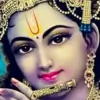I have written before about the smug certitudes that so often accompany religious belief, and the sophistry/cherry-picking inherent in the thought process that goes: "THIS is what the scriptures really meant, and it's all good and clean and pure and exactly as I want it to be. Anything else - anything that makes me uncomfortable, or doesn't fit the accepted moralities of today, or makes the Gods seem imperfect, or even vaguely suggests that those old books may have been a product of their age rather than containing unassailable wisdom and truth for all time - any such thing HAS to be a flawed reading, or a later corruption of the text. Or, wait, it can be interpreted THIS way, which makes everything okay again."
This thought process isn't limited to those whom we can conveniently label "fanatics". Some generally intelligent people I know, including some who aren't especially religious, often bring up that beautiful, soothing - and nonsensical - idea that all religions "in essence" or "in their original form" teach love, universal brotherhood, tolerance and non-violence. A cursory reading of the major works of ancient literature shows how bizarre this claim is. But of course, once you know, with absolute certainty, that they really are all divine texts, that so-and-so really WAS a God, and that Gods by definition are good and all-knowing and so on, it becomes easy to rationalise anything.
I had an email conversation with a friend today - it touched briefly on the Doniger episode, but it began as a discussion of the new TV Mahabharat, which (no surprise) depicts Krishna as a forever-in-control avatar, constantly manipulating events towards the Greater Good, interfering in every scene to such a degree that you feel all the other characters could easily have been played by mannequins with little strings attached to them. Compared to this beacon in man-shape, even the Krishna of the B R Chopra serial - a fairly populist show in its time - was a flawed, sometimes conflicted, likably human character.
Anyway, I was telling my friend about the new show's whitewashing of nearly every dubious action performed by the "good guys", the Pandavas and Draupadi, how it glibly stacks the cards in their favour, and against those who are on the side of "adharma". There is a scene at Draupadi's swayamvara where Krishna meets Karna for the first time and tells him something like, "If you don't get respect - sammaan - it means you have not followed the path of dharma." Karna asks "But what about someone who has never known respect, right from his earliest days?" and to this Krishna smiles sweetly and wags his finger and says "Oh, in that case, you must strive all your life for respect. But don't do it by siding with adharma."
One gets the gist of what is being said, and even buys into it to a degree if one is hung up on the Bhakti Tradition Krishna and the Mahabharata-as-Morality-Tale. And I'm not suggesting that the injustices done to Karna be used to justify or even gloss over the wrongs he participates in. But this scene (and there are others like it) presents such a simple-minded view of what is good and what is bad, and such an undermining of lived experience. As I told my friend on email, if this Krishna travelled to modern-day Delhi and met an autorickshaw driver who had just been smacked hard by a rich kid in a BMW because their vehicles had grazed each other, he'd probably say the same thing with the same expression.
She replied: "That is what I find so fearfully disturbing about the [...] discourses of today: they all conspire (consciously or otherwise) to vindicate a certain hierarchy by transforming it into benevolent, enlightened patriarchy, striving to achieve everyone's well-being. Poppycock." Well said. There are so many versions of this benevolent patriarchy. ("Yes, yes, we believe in freedom of speech too," they say with indulgent smiles, "But, you know, this will hurt so many feelings. Couldn't you avoid writing it?") And we see a form of it in the objections to books like Doniger's, by people who want a single, standardised, comforting version of things, with nothing that will rock any boats.
If possible, I would recommend going through some of the comments to the blog too.































